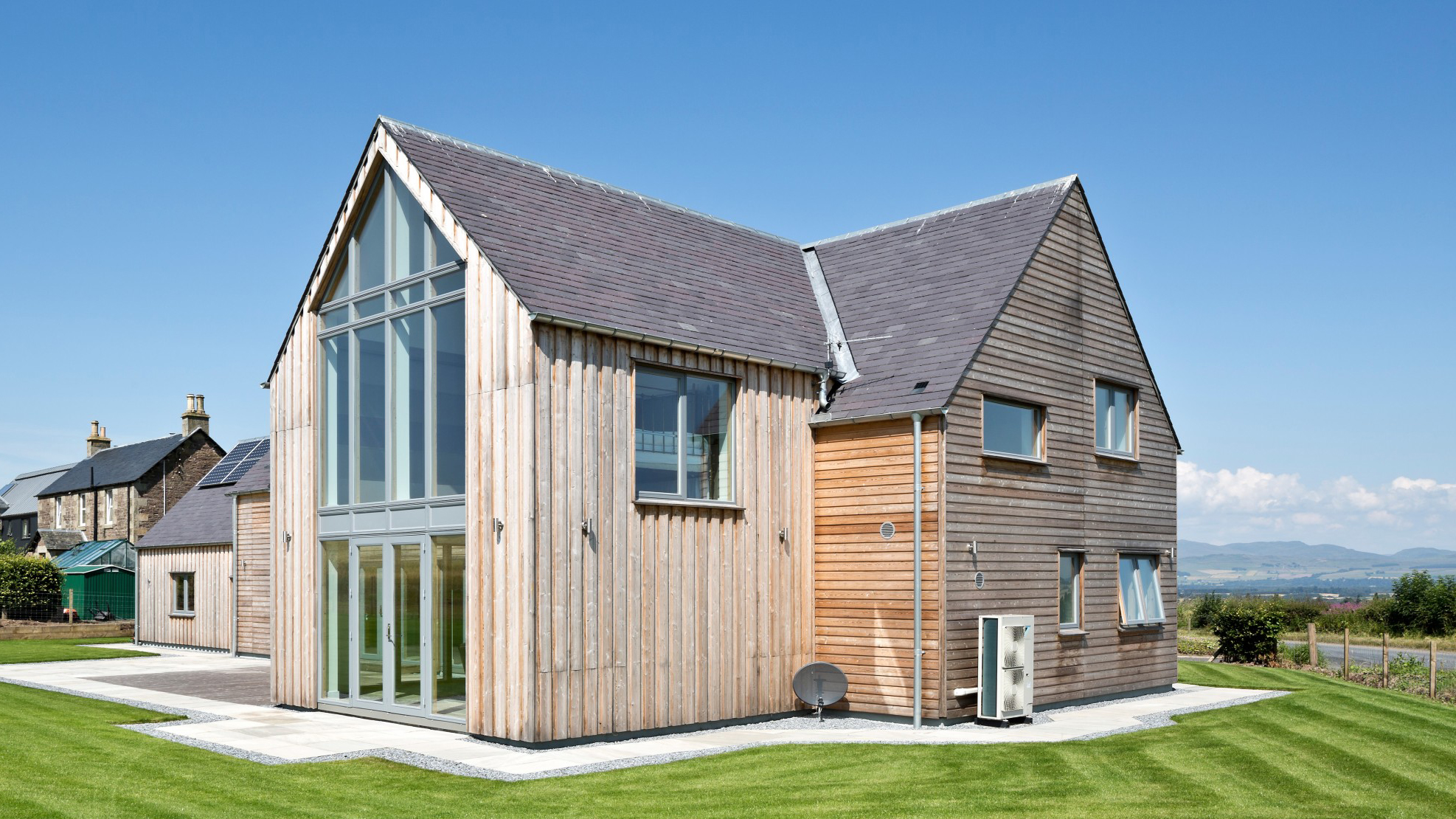Heat pumps and solar panels could be mandatory in new homes from 2025
Two options have been put forward as part of a government consultation, which will set out the heating, hot water and ventilation standards in new homes as of 2025

The government has published a consultation for the UK's Future Homes Standard that has set out proposals for the required standards for all new homes from 2025.
All options the consultation is looking at will see all new homes requiring air source heat pumps to be installed as well as other eco-friendly measures.
These options, it is hoped, will require all new homes to produce 75-80% less CO2 emissions than one built to current requirements, helping reduce the carbon emissions the UK produces.
All new homes will require air source heat pumps
The Future Homes Standard will require all new homes to install air source heat pumps in order to meet net zero goals.
Fossil fuel heating options such as oil and gas boilers will not be permitted whilst hybrid heat pumps and hydrogen boilers will also not be allowed as they were found to not meet the standards needed to deliver ‘zero-carbon ready’ homes.
Ground source heat pumps were not mentioned in the consultation and Homebuilding & Renovating have contacted the Department for Levelling Up, Housing and Communities to clarify whether they qualify but no response has yet been received.
Two options put forward for heating and hot water in new homes
As part of the government's latest consultation, two options were put forward for heating and hot water proposals in new homes from 2025.
Get the Homebuilding & Renovating Newsletter
Bring your dream home to life with expert advice, how to guides and design inspiration. Sign up for our newsletter and get two free tickets to a Homebuilding & Renovating Show near you.
The first option - referred to as "option 1" - would see all new homes requiring an air source heat pump, dMEV (decentralised Mechanical Extract Ventilation), a wastewater heat recovery system and high-efficiency solar PV panels covering 40% of the ground floor area of the home.
Meanwhile an alternative option would see all new homes only requiring an air source heat pump and natural ventilation with intermittent extractor fans.
The consultation will look at which of the two options should be implemented. The first option is already being touted as the most cost-effective option to maximise carbon savings as it is predicted to reduce heating and hot water bills by £910-£2,120 compared to Option 2's £210- £1,420 savings, but will also require higher upfront costs.
Baroness Penn, minister for housing and communities, said: “New homes and buildings must be fit for the future to help us reach net zero by 2050.
“Our energy-saving changes will cut bills for new homeowners and businesses, while also reducing carbon emissions by at least 75% for all new homes. This builds on our long-term plan for housing to deliver the high-quality, energy-efficient homes that local communities want and need.”

Mixed reaction from industry experts
Reaction to the news has garnered mixed opinions from industry experts with some claiming the plans will help expand the heat pump market whilst others claim the plans are cementing what is already being done by homebuilders.
Ian Rippin, CEO of MCS (Microgeneration Certification Scheme), welcomed the announcement stating: "Mandating all space heating and hot water demand in new homes should be met through low-carbon sources will ensure the UK makes quicker progress towards decarbonising our housing stock.
"It also gives homeowners assurance that they are making the right decision in installing a heat pump which is a proven technology for heating our homes.
"We are disappointed that no clear stance has been declared on mandating Solar PV for all new homes, but remain hopeful that the outcome of the consultation will conclude that solar is a must-have for new build homes, supporting homeowners by decreasing electricity bills, securing energy independence, and reducing their carbon impact."

Ian is presently spearheading the transformational change at MCS aiming to catalyse a new era of domestically produced energy tailored to meet the requirements of every UK household and community. MCS serves as the national standards organisation, certifying small-scale low-carbon products and installations utilised for generating electricity and heat from renewable sources.
Tamsin Lishman, CEO of Kensa the British Heat Pump Manufacturer, commented: “The publication of proposals requiring all new homes to be low-cost, low-carbon and energy efficient to run is a major step forward for the decarbonisation of homes and heat.
"This new standard will boost heat pump installations drastically, expanding the market from 50,000 to over 250,000 almost overnight, providing companies like Kensa with the confidence to go ahead and invest heavily in new manufacturing facilities and the continued development of our supply chains.
“It is particularly important that these proposals intend to make heat pumps and low-carbon heat networks the default options for heat in new homes, effectively banning new gas grid connections and so-called hydrogen-ready boilers from installation."

Tamsin is a graduate of Engineering Science from Oxford and a Fellow of the Energy Institute, Tamsin is transitioning from her position as Chief Revenue Officer at ENERGYNEST. In this capacity, she has crafted customer offerings to deliver sustainable, dependable, and cost-effective industrial heat, with a focus on specialised solutions in thermal energy storage and power-to-heat applications across the UK and EU. Before her tenure at ENERGYNEST, Tamsin held key leadership roles at Northumbrian Water Group, Centrica, and BP.
However, when asked about the lack of mention in the consultation about ground source heat pumps a spokesperson for Kensa stated: "Given the higher energy efficiency of GSHPs (ground source heat pumps) compared to ASHPs (air source heat pumps) there are no concerns that GSHPs won't meet the new building regulations.
"However, it is frustrating to see policymakers once again choosing one heat pump technology over another, explicitly naming ASHPs whilst making no mention of GSHPs.
"This has the potential to create a 'default' option for ASHPs, with many building developers not looking any further. We would like to see the wording of the final regulations remove this bias, setting notional standards simply for heat pumps, or for both technologies."
Simon McWhirter, Deputy Chief Executive at UKGBC, also criticised the proposals saying: "This can’t genuinely be described as a ‘future’ standard. Having already shattered industry confidence with repeated green rollbacks, the Government has opted for the least ambitious option that would deliver ‘future’ homes from 2025 at a lower standard than many homes already built today.
“While the Government is right, of course, to finally end the era of burning gas and oil in our new homes and buildings, fitting low-carbon heating sources such as heat pumps is already commonplace and the standard provides no improvement in energy efficiency."

News Editor Joseph has previously written for Today’s Media and Chambers & Partners, focusing on news for conveyancers and industry professionals. Joseph has just started his own self build project, building his own home on his family’s farm with planning permission for a timber frame, three-bedroom house in a one-acre field. The foundation work has already begun and he hopes to have the home built in the next year. Prior to this he renovated his family's home as well as doing several DIY projects, including installing a shower, building sheds, and livestock fences and shelters for the farm’s animals. Outside of homebuilding, Joseph loves rugby and has written for Rugby World, the world’s largest rugby magazine.
